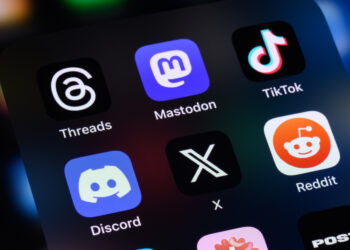Details of the new service and e-books are beginning to link out (Google “pottermore” and you will be astounded), but we should say at the outset that the news is partly false. It is not true that Harry Potter will be made available as an e-book for the first time. The Potter books are available wherever pirates can be found; by some estimates, they are the most pirated books of all. Speculation among the digerati is that the prevalence of the Potter novels among the pirates is a function of their unavailability as authorized e-books, and this might actually be true. But whatever the reason, Harry Potter is a mainstay of Voldemort’s Internet underground. I will not provide any links to pirate sites as a matter of good citizenship, but I will note that almost every book with commercial value can be found somewhere online for free.
- Lesson #1 — The inevitability of piracy. Rowling famously declined to let her boy go “e” because she feared piracy. It’s difficult to imagine how Harry Potter could have been pirated more if the books were available in authorized electronic editions. I doubt that there is anything that could have prevented piracy, but at a minimum it is clear that not having authorized digital editions cost Rowling a decimal point or two of her already fabulous wealth. Any publisher with a commercially strong title will be fodder for pirates. What we learn from this is that the use of DRM may not be in publishers’ business interest, though it is still not clear if no DRM is a good choice either.
- Lesson #2 — Brands can be patient. I wish this were not true, but it is. The fact is that a publisher with a strong brand does not necessarily have to lead in all things. Rowling waited for several years before deciding to go “e,” and it’s not clear that it has hurt her all that much (short-term lost sales may be more than offset by launching with a more seasoned plan). We should note that the period of waiting was in fact not all that long: the Kindle, which started the whole e-book explosion, was launched in November 2007, about three and one-half years ago. A strong brand can let others sort out the problems in the marketplace. Essentially, Rowling has done her R&D on the backs of others.
- Lesson #3 — Direct marketing is now here. This is the single most important aspect of Rowling’s announcement. Not only is she self-publishing the e-books (using the Overdrive platform), but she is not working through retailers, online or off. Hallelujah, I say. I have taken a great deal of criticism for predicting the inevitability of direct marketing by publishers (Stage Four of my five-part publishing taxonomy), but now, with a wave of the wand, Rowling has anointed me an oracle. I expect to play a role in her next book. Of course, someone will say, “This is all fine and good for J.K. Rowling, but what about us poor slobs with books that only sell 300 copies over their lifetime?” Strong brands always have the advantage, but Rowling is serving as guide here, showing other publishers how this can be done and what the pitfalls are.
- Lesson #4 — Rowling the publisher will set the price of the books. In the US, this is sometimes called “agency pricing”; in enlightened jurisdictions around the world, manufacturers have the ability to set the price for their wares regardless of where they are sold. Opponents of this practice don’t understand how much more competitive this makes the marketplace, how it enhances customer service, how it would naturally lead to greater variety among bookstore offerings — in other words, how culturally enriching a fixed-price regime would be. But in the US, we have chosen the opposite road for the most part, which results in the growth of virtual monopolies like Amazon.
- Lesson #5 — The consumer tail wags the dog. Publishers have been struggling to find ways to break the stranglehold on ebook distribution that Amazon now possesses, but with one stroke of his magic sword, Harry Potter has done it. Scholarly publishers ride on roads paved by consumer publishers; to build a strategy for scholarly publishing on the Internet, the first place to look is at the megasellers that one might even be embarrassed to be caught reading. Care to swap one Janet Dailey for my Clive Cussler?
Harry Potter has much more to teach us, of course. The phenomenon of the books’ success reminds us that kids like to read if you give them the right things, that reading can be shared by all the family, and that the death of the book is greatly exaggerated. As Dumbledore said of his young pledge, Harry has heart.
Discussion
3 Thoughts on "What We Can Learn From Harry Potter"
I agree that Rowling is not doing something new here, but she is going to help all of us who trying to sell our ebooks through the use of websites and blogs. She makes us all a bit more legitimate. I hope that readers will like Pottermore and then start looking fr more, similar material from other writers.
Very interesting! I’m curious as to #5’s suggestion that scholarly publishers might be able to disintermnediate Amazon here by selling directly to customers. Doesn’t this require a big operation that a smaller university press, say, could not afford to launch or maintain? Is that where a consortium might come into play, building off your idea for an online university press catalogue?
These are great lessons to be learned from J.K. Rowling or the Harry Potter. Creating an ebook for the Harry Potter series and administered by J.K. Rowling herself is a smart move. Although she already had created a very strong brand in her Harry Potter, it is still very possible for indie authors and publishers aspiring to create a double in their sales of books.



